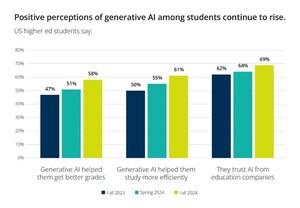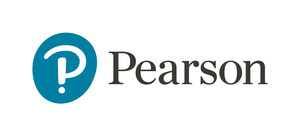LONDON, Feb. 25, 2021 /PRNewswire/ -- Pearson today released editorial guidelines that will advance the company's commitment to fighting systemic racism in education. The guidelines will serve as a resource to help content developers -- including authors, reviewers and editors—create meaningful representations of minorities and challenge racial stereotypes and associated prejudices in all Pearson courseware, digital materials, services, qualifications and assessments.
The guidelines will inform Pearson's broader Global Editorial Policy that will be re-released later this year with enhanced standards for content relating to race, ethnicity, gender, sexual orientation, social class, religion and disability. Training on the guidelines is being rolled out globally to Pearson employees over the next 12 months.
Specifically, the guidelines identify five main challenges that are commonly highlighted in academic sources including: underrepresentation of minorities, exaggerated negative associations, limited positive associations, missing stories, and the idea that disadvantages are personal, rather than systemic. The guidelines provide examples of each challenge and recommended solutions to guide Pearson content producers.
The guidelines were created by members of Pearson's employee resource groups with consultation from Dr. Jason Arday, Deputy Executive Dean (People and Culture), Associate professor of sociology at Durham University UK and author of the Black Curriculum Report, a seminal report on curriculum inequality in the UK. Specifically, employees from Pearson PRIME (People Representing the Interests of Multiple Ethnicities) and Pearson Bold, which is dedicated to empowering employees of Black and/or African ancestry led the report.
"2020 was a year of enormous change and action across the world when it comes to race and ethnic equality. It has highlighted the need for action to address systemic inequality that people from diverse backgrounds face every day," said Ebrahim Matthews, Senior Vice President, Global Schools, Pearson. "The work we do at Pearson makes a real difference in the lives of millions of people and there is more we can and should do. This is an important step to address systemic and personal bias related to race and ethnicity in academic content, and to ensure that what we produce is anti-racist, accurate and authentic."
"The guidelines produced represent a cultural shift in publishing that attempts to center race and racial equality at its core," said Dr. Arday. "Pearson's commitment to changing the racialized dynamics of publishing and the contents of its books, speaks to a boarder need for the educational publishing industry to disrupt how bodies of knowledge are presented with regards to texts and learning resources. This organizational commitment reflects Pearson's attempts to engage with an anti-racist approach that embraces a global and diverse international readership and consumer base."
Similar guidelines for content relating to gender, LGBTQ+ and disability from Pearson employee resource groups will inform the Global Editorial Policy and advance Pearson's commitment to being a fully inclusive and diverse organization that reflects the communities it serves. Pearson also recently announced the appointment of Dr. Florida Starks as chief diversity officer to lead a cross-functional, company wide effort to advance DEI initiatives.
In another step to identify any existing bias in Pearson content or services, and to facilitate better communication with students, instructors, customers, and the public, the company created a web portal to welcome potential instances of bias. The portal can be found here. The portal was built after being recommended by the Pearson DEI Task Force and students and faculty.
Pearson has recently remediated instances of biased terminology and imagery in courseware based on student feedback. One example is the use of the term "Master/Slave," commonly used in engineering and computer science fields. Pearson is now leading the industry in removing the terminology from hundreds of titles. The company has started an effort to work with engineering and computer science organizations to stop the use of the terminology in other contexts. In addition, Pearson has reviewed 100 of its top titles to find instances of bias. Remediation efforts are underway.
You can read about Pearson's plan to pursue an anti-racist agenda, fight systemic racism, and create equity and opportunity through education here.
About Pearson
We are the world's leading learning company with more than 22,500 employees operating in 70 countries. We provide content, assessment and digital services to learners, educational institutions, employers, governments and other partners globally. We are committed to helping equip learners with the skills they need to enhance their employability prospects and to succeed in the changing world of work. We believe that wherever learning flourishes so do people. Visit www.pearson.com.
Contact: Scott Overland, (202) 909-4520
[email protected]
SOURCE Pearson

Related Links
WANT YOUR COMPANY'S NEWS FEATURED ON PRNEWSWIRE.COM?
Newsrooms &
Influencers
Digital Media
Outlets
Journalists
Opted In





Share this article